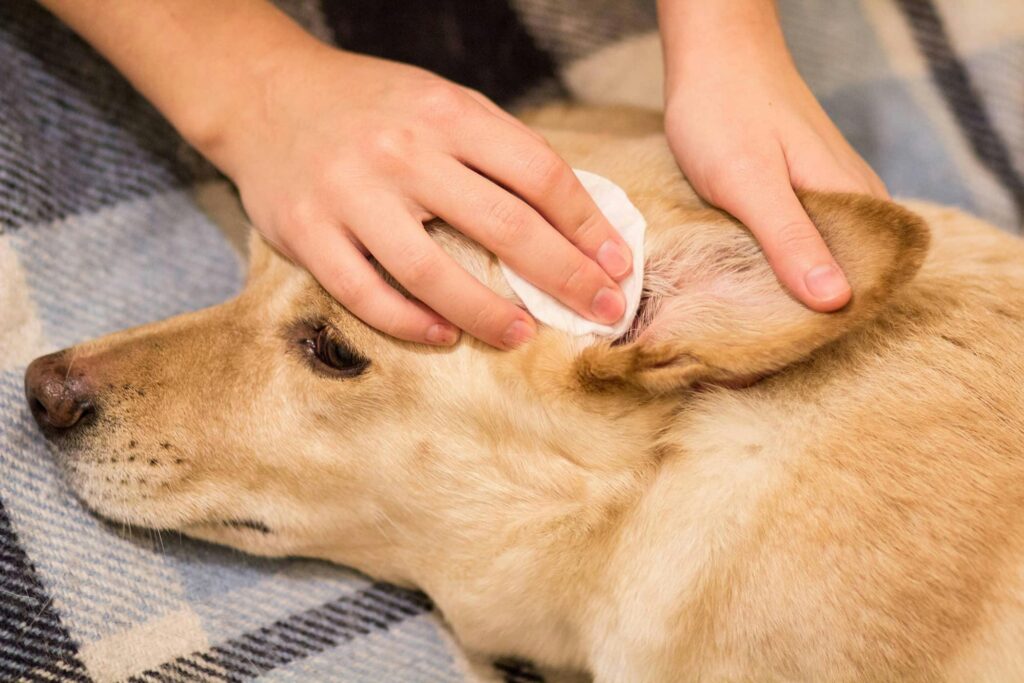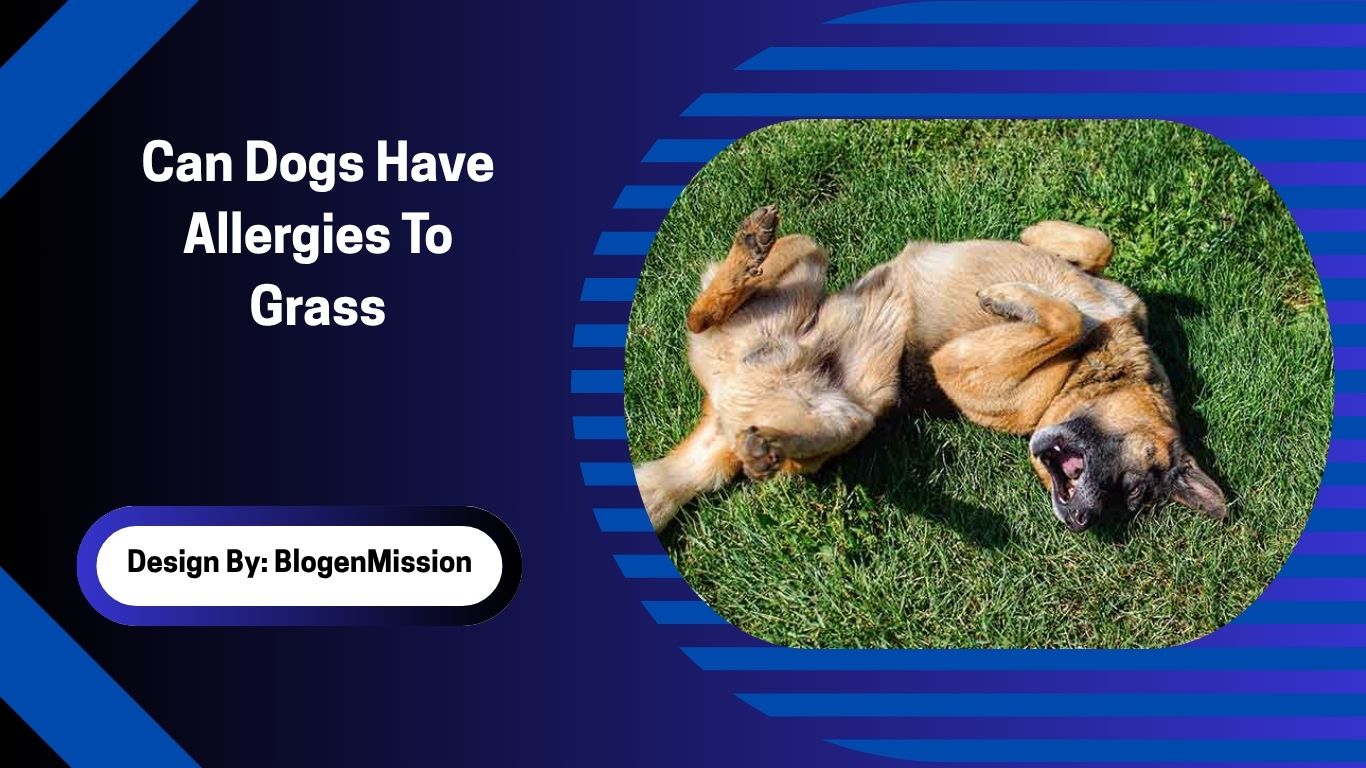Yes, dogs can have allergies to grass, causing symptoms like itchy skin, paw licking, and ear infections. Proper diagnosis, treatment, and prevention strategies help manage these seasonal or chronic allergies effectively.
Many dog owners are surprised to learn that their pets can suffer from environmental allergies—just like humans. One of the most common triggers? Grass. Yes, dogs can have allergies to grass, and this condition is becoming increasingly recognized by veterinarians.
In this detailed guide, we’ll explore what grass allergies are in dogs, how to identify the symptoms, what causes the allergy, and how to treat and prevent flare-ups to ensure your furry friend enjoys a comfortable life outdoors.
What Is a Grass Allergy in Dogs?
A grass allergy is a type of environmental allergy—known as atopy—that occurs when a dog’s immune system overreacts to proteins found in grass pollen or even direct contact with grass itself. This triggers a range of symptoms, most of which are skin-related but can also affect the respiratory or digestive system.
These allergies often develop between ages 1–3, but dogs can become sensitized at any age, especially if they live in grassy areas or are exposed during peak pollen seasons like spring and early summer.
Common Dog Breeds Prone to Grass Allergies

While any breed can develop grass allergies, some are genetically predisposed to environmental sensitivities, including:
- Golden Retrievers
- Labrador Retrievers
- Terriers (especially Westies and Scotties)
- Boxers
- Bulldogs
- Poodles
- German Shepherds
These breeds often have a weaker skin barrier, making them more susceptible to irritants and allergens.
Symptoms of Grass Allergies in Dogs
Grass allergy symptoms may vary depending on the dog, the type of grass, and the level of exposure. The most common symptoms include:
- Itchy Skin (Pruritus): Excessive licking, chewing, or scratching, especially on paws, belly, groin, and ears.
- Red, Inflamed Skin: Rash-like irritation or hot spots (moist dermatitis).
- Hair Loss: From excessive licking or biting the same area repeatedly.
- Ear Infections: Recurrent ear infections, head shaking, and ear odor.
- Watery Eyes or Sneezing: Less common, but some dogs show hay fever-like symptoms.
- Swollen or Chewed Paws: A classic sign, especially if the dog walks on grass regularly.
- Digestive Issues: Vomiting or diarrhea (rare, but possible in severe cases).
What Causes Dogs to Be Allergic to Grass?
A dog becomes allergic to grass due to an overactive immune response. The body mistakenly identifies harmless grass proteins—such as Bermuda, Kentucky bluegrass, ryegrass, or fescue—as threats, triggering an allergic reaction.
Exposure can happen through:
- Inhalation of grass pollen
- Direct skin contact
- Ingestion while chewing grass
Certain conditions increase the likelihood of allergies:
- Frequent outdoor activity
- Seasonal pollen spikes
- Weakened immune system
- Genetic predisposition
How to Diagnose Grass Allergies in Dogs
Veterinarians diagnose environmental allergies using the following:
- Clinical Evaluation: Based on history and observed symptoms (especially seasonal flare-ups).
- Intradermal Skin Testing: A small amount of allergens is injected under the skin to observe reactions.
- Serum Allergy Testing (Blood Test): Less invasive, though sometimes less accurate.
- Elimination Trial: Ruling out food allergies or parasites (like fleas) that mimic grass allergy symptoms.
Treatment Options for Dogs Allergic to Grass
While there is no permanent cure, multiple treatments can manage symptoms effectively and improve your dog’s quality of life.
1. Antihistamines
- Medications like Benadryl (diphenhydramine) may help mild cases.
- Always consult a vet for correct dosage.
2. Steroids (Short-Term)
- Prednisone or hydrocortisone creams reduce inflammation and itching.
- Not ideal for long-term use due to side effects.
3. Cytopoint Injections
- A monthly injection that blocks the itch signal in the nervous system.
- Safe for long-term use.
4. Apoquel (Oclacitinib)
- Oral prescription anti-itch medication.
- Works quickly and has fewer side effects than steroids.
5. Allergy Immunotherapy (Desensitization Shots)
- Custom allergen vaccine developed from testing results.
- Gradually reduces allergic response over 6–12 months.
- 70–80% success rate.
6. Omega-3 Fatty Acid Supplements
- Strengthens the skin barrier and reduces inflammation.
7. Medicated Shampoos and Wipes
- Relieve itchiness and remove allergens from the skin.
- Products with chlorhexidine, oatmeal, or aloe vera are commonly used.
Natural Remedies and Lifestyle Tips

In addition to medical treatments, several home care strategies can help minimize grass allergy symptoms in dogs:
- Wipe Paws After Walks: Use hypoallergenic wipes to remove pollen from paws and belly.
- Bathe Weekly: Regular baths with anti-itch or hypoallergenic shampoo reduce allergen buildup.
- Limit Outdoor Time During High Pollen Seasons: Especially early morning or windy days when pollen counts are highest.
- Use HEPA Filters Indoors: To reduce airborne allergens.
- Mow Grass Regularly: Keeping grass short may reduce pollen release.
- Protective Footwear or Dog Boots: Helps prevent direct contact with grass during walks or playtime.
Can Grass Allergies Get Worse Over Time?
Yes. Like many chronic conditions, grass allergies in dogs can intensify with repeated exposure, especially if left untreated. Over time, what starts as mild itching may escalate into severe infections, secondary skin conditions, and long-term discomfort. That’s why early intervention and consistent management are key.
When to See a Veterinarian?
You should consult your vet if your dog:
- Exhibits chronic itching or biting of paws
- Develops red, raw, or bleeding skin
- Has recurring ear infections
- Shows signs of discomfort after being on grass
- Doesn’t respond to OTC remedies
Delaying professional treatment can lead to complications like bacterial or yeast infections, requiring more intensive therapy.
FAQs:
1. Can puppies have grass allergies, or does it only occur in older dogs?
Grass allergies typically appear in dogs between 1–3 years old, but puppies can also develop sensitivities if genetically predisposed. Early symptoms may include itching, red skin, or chewing paws after playing outdoors.
2. Is there a specific type of grass that causes more allergies in dogs?
Yes, grasses like Bermuda, Kentucky bluegrass, ryegrass, and fescue are common culprits. Dogs can react differently depending on the specific grass variety and pollen levels in the region during seasonal peaks.
3. Can grass allergies in dogs lead to infections if untreated?
Absolutely. Constant scratching and licking from allergies can break the skin, leading to bacterial or yeast infections. Timely treatment helps prevent complications like hot spots, ear infections, and chronic dermatitis.
4. Are indoor dogs safe from grass allergies?
Even indoor dogs can be affected if grass pollen enters through windows, shoes, or on their owners. Using HEPA filters, wiping paws, and regular cleaning can reduce indoor allergen exposure significantly.
5. Can diet help reduce grass allergy symptoms in dogs?
Yes, diets rich in Omega-3 fatty acids can strengthen the skin barrier and reduce inflammation. Supplements or skin-supportive dog foods may complement medical treatment and improve the dog’s immune response.
Conclusion:
Grass allergies are a common and manageable issue in dogs. Recognizing early signs—like itchy skin, paw licking, or recurring ear infections—can help prevent more severe complications. While there’s no cure, a combination of veterinary treatment, lifestyle changes, and preventative care can significantly reduce symptoms. With proper support, even grass-sensitive dogs can enjoy the outdoors safely. Always consult your vet for personalized advice and treatment options tailored to your dog’s condition, ensuring they lead a happy, healthy life—free from the discomfort of allergies.
Related Post:
- Why Is My Dog Panting So Much At Night – Causes and Solutions for Canine Health!
- Dog Bucket List – Unforgettable Adventures for Your Canine Companion!
- What Months Do Dogs Need Heartworm Pills – Full Guide!
